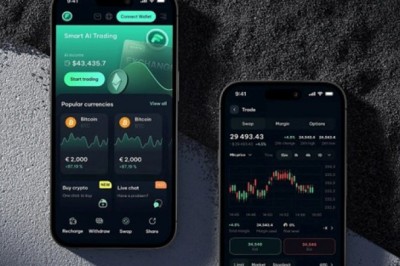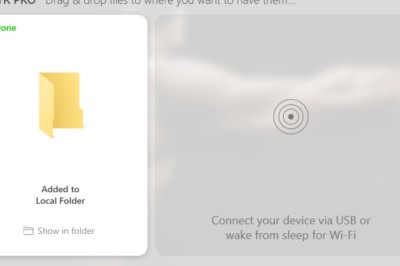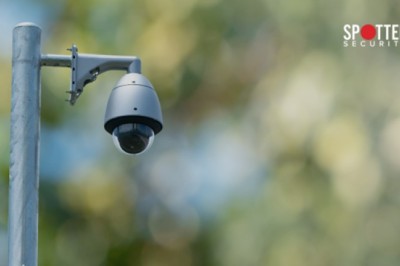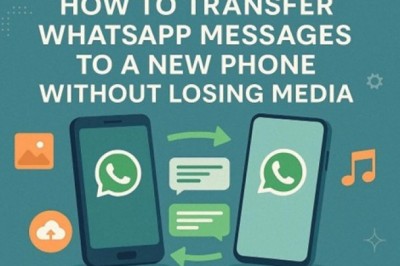views

Customer information is a vital asset for businesses of all sizes. It influences customer behavior, shapes strategy, and powers decision-making. As companies leverage the capabilities of Customer Relationship Management (CRM) systems, protecting this data becomes paramount. After all, a CRM system is not just a tool; it holds customers' valuable and sensitive data.
Cybersecurity threats like cyberattacks, data breaches, and unauthorized data access have become more sophisticated. And because CRM systems contain enormous volumes of transactional and personal data like contact and credit information, they can be a primary target for cybercriminals. A breach can have more than simply financial ramifications; it can also undermine confidence, harm a brand's reputation, and result in legal issues.
To safeguard your customers' data, we listed some cybersecurity measures for your businesses' CRM systems below.
How to Safeguard Your CRM Data Against Breaches
Now that you know the necessity to safeguard data security and privacy, let's explore critical actions your company must take to improve CRM data protection.
Enhance Your IT infrastructure Security
This strategy suggests using cutting-edge technology and creative ideas to keep the complete IT ecosystem—including furniture and hardware—extremely secure from outside influences. Protecting servers, network equipment, and other tools reduces the possibility of system failure and downtime.
Collaborate With a Reputable and Trustworthy CRM Provider
Numerous suppliers provide their CRM systems. Pay close attention to the terms of collaboration, user reviews, and reputations of potential service providers while choosing one. The first step in selecting the finest security CRM provider is to compare and assess multiple providers.
Implement 2FA (Two-Factor Authentication)
Add this entry-level technology to your systems to increase their security. The approach suggests using two distinct methods to authenticate yourself to gain access to data. Examples of frequent solutions are a security token or an SMS code to a phone number.
Create Strong Passwords
Using strong passwords is essential to a confidential policy. To reduce the possibility of unwanted access attempts, add more symbols, make your passwords complex, and encourage frequent password changes.
Use Data Backups
One essential measure to minimize information loss from unanticipated events, including power outages or terrible breaches, is to back up any data regularly. And a business can quickly recover if it encrypts its backup.
Encourage Single Sign-On or SSO
This approach suggests streamlining user access without sacrificing privacy requirements. For example, access to every system is granted upon authentication.
Arrange Cybersecurity Training Sessions
Being knowledgeable is a strong defense against outside threats. The team remains well-prepared since potential risks are acknowledged. They are taught to respond quickly to attacks to stop data theft and system failure.
Utilize Monitoring Tools to Spot Questionable Behavior
Use tools to detect suspicious patterns in the system's operation and to scan and monitor each access point.
Introduce Access Permission Strategies
Employers can restrict who has access to data by incorporating more detailed access control systems. RBAC, or role-based access control, reduces the amount of unwanted access.
By implementing these strategies, businesses can improve their security systems, make them more reliable, and stop external threats from negatively affecting data and hardware.
What Happens if You Don’t Secure Your CRM Systems
Reputation Damage
One possible outcome of a data breach or hack on a CRM system is reputational damage. A company's reputation may suffer, and customers may stop trusting it because of a client data breach.
If a company fails to protect customer data, it may see a drop in sales, revenue, and possibly legal action due to the decline of customer trust.
Business owners are frequently consulting Agentforce implementation experts who help assess system gaps and align security practices with operational goals. This guidance supports long-term planning by reducing exposure to data risks while reinforcing customer confidence through stronger internal controls.
Legal and Financial Penalties
There may be harsh consequences if personally identifiable information (PII) or financial data is compromised because of the breach.
Some examples of legal sanctions are fines, litigation, and settlements. The severity of the breach, the number of consumers impacted, and the jurisdiction in which the breach happened can all affect how much these penalties are.
Loss of Sensitive Data
Sensitive information, such as client names, addresses, phone numbers, financial information, and other personal details, may be lost or stolen because of data breaches.
Businesses may face severe repercussions from the loss or theft of sensitive data, such as financial and legal penalties, brand damage, decline of customer trust, and loss of competitive advantage.
Identity Theft
Identity theft and fraud can be committed using stolen personal information, leading to monetary losses and harm to credit ratings.
Identity theft can face severe consequences for the companies in charge of preserving the information and the people whose personal information is stolen.
Business Disruption
A data breach may result in the CRM system being hacked or inaccessible, costing the company money and productivity. A corporation may even be forced to temporarily close if a data breach is serious enough.
Final Thoughts
The CRM landscape faces new problems as a result of evolving technology. Nonetheless, prioritizing system security and implementing standard solutions are the best ways to safeguard against these CRM issues. By adhering to these security protocols consistently and upgrading them along the evolving technologies, businesses may adeptly traverse the digital landscape, protect confidential information, and cultivate long-lasting trust with customers.
























Comments
0 comment